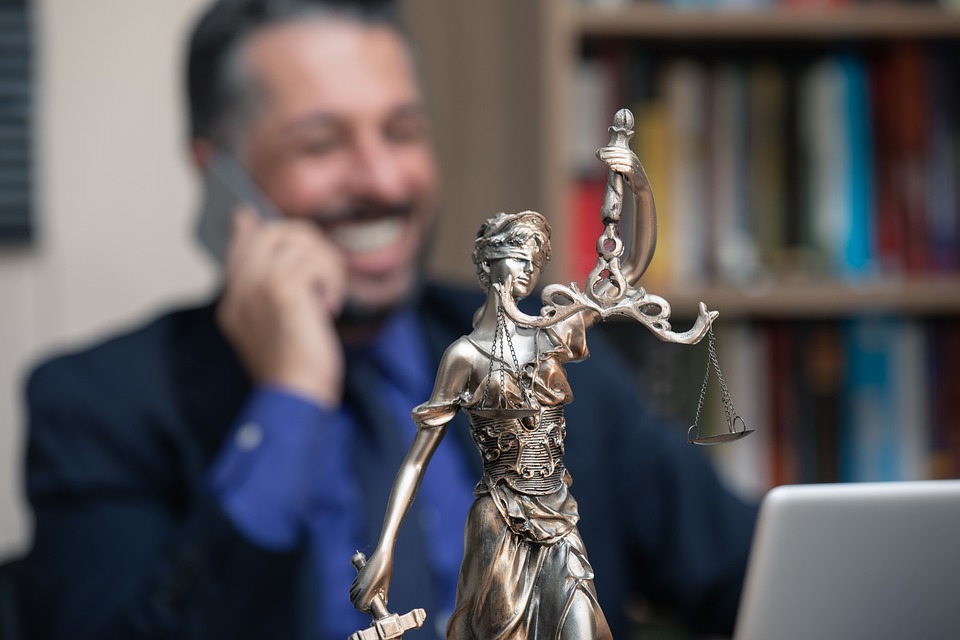
Why All Professionals Should Have First Aid Training
January 29, 2022
5 Reasons to Hire a Law Tutor
January 29, 2022Criminal law, the body of law that relates to criminal activity and crime, compromises the smallest number of legal cases in any given year, but it is still important for everyone to understand how it works since it can affect lives in a substantial way. There are four things that one should know about criminal defense law in order to better understand the legal system as a whole and to make sure you get the best possible outcome if you are ever faced with this issue.
1. The Right To An Attorney
The entire western legal train of thought when it comes to criminal law is that the offender is innocent until proven guilty. Even though this might not always seem fair at first glance, it’s set up this way in order to ensure that everyone’s rights are protected in every way.
In almost all criminal cases, it’s a matter of the state vs the individual, which implies a power imbalance from the very beginning. In other words, lawyers that specialize in criminal defense law almost always represent individuals and businesses that have criminal charges brought up against them by the state or the federal government. Even though, in most cases, a crime is committed against another individual, or a group of individuals, in order for something to qualify as a crime it needs to be considered bad enough that it puts the societal foundations at stake.
Thus, the prosecution has a right to accuse and criminal defense attorneys have a right to defend. The idea is that the state is there to ensure the interests of the community are being protected – by prosecuting a crime, and the defendant’s attorney is there not only to protect their client but also to protect the idea that an individual is equal in the eyes of the law even when faced with a much larger opponent.
2. The Judge Has The Final Say
Sometimes the media, especially Hollywood, can make it seem like it’s the journey that decides on the sentence in a criminal case. However, that’s simply not how courts work in reality There is only one person in the entire equation that has complete control over all proceedings – and that’s the judge. While yes, some states do have juries that weigh in on whether they consider that someone is guilty of a crime or not, they don’t decide on the punishment at all, and in a lot of places, their stance can be overruled by the judge – although that doesn’t happen as often.
The reason why juries are used in criminal cases is that the punishments if found guilty are harsh, so the juries are there to affirm a societal stance on the case. It’s incredibly important for a criminal defense attorney to know how to present their case to the jury in order to sway them one way or the other, which is why they are very experienced in this particular field.
3. Harsher Punishments Don’t Mean Better Deterrence
It’s not unusual to feel like the punishments predicted for certain crimes aren’t enough – and sometimes this can even cause a public outcry. However, criminology – a science that studies criminal behavior, and the laws surrounding it – has shown time and time again, that harsher punishments don’t mean better deterrence – neither when it comes to deterring an individual nor the general public. On the contrary, punishments that are too harsh could even motivate the perpetrator to commit a worse crime than they originally would have done.
Let’s take a hypothetical situation as an example. If the punishment for unarmed robbery would be life in prison, in a place that has no capital punishment, the person committing the crime could very well consider the fact that they could end up in jail for the rest of their lives either way, so killing the witnesses might give them a better chance of getting off scot-free. It creates a system where the criminal might feel like they stand little to lose and more to gain by committing a worse crime.
4. Plea Bargain Explained
Simply put, a plea bargain is an agreement between the defendant and prosecutor that implies that if the latter agrees to drop some of the charges against them or decrease their sentence in any other way, then they will plead guilty to what actually happened. It’s one of the most controversial aspects of criminal law simply because it could be considered coercion.
However, the defendant and their defense attorney have to be aware of the terms of a plea bargain and agree on them before it’s made official – so they can’t claim that they were coerced. They are also only made either when it was a first-time offense, or the defendant has information that’s a lot more valuable to society as a whole. For example, convicting a small-time drug dealer is important, but if they can point to the person or people higher-up in the food chain, society stands to gain more from giving them a milder sentence if that means the big fish gets caught.
It’s easy to see why the legal side of things is so complicated. There are just so many layers that each has to be peeled back in their own way, and every one of them has good reasoning as to why it should be done just like that. Every case is different, but knowing how the legal system works enables you to understand what is happening in the background, and why. That way you can better appreciate your legal rights, and what makes the criminal justice system so unique amongst all other systems out there.





